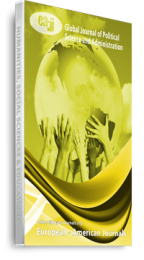The wave of mass protests spreading through the Arabic-speaking Countries may have begun to recede; it has left a wide-ranging impact on the region. It started in Tunisia in December 2010 and spread to the rest of the Middle East throughout 2011. Four authoritarian regimes have collapsed, and some are experiencing varying degrees of duress. If transitioning states fail in retooling their economies, the prospects for reform in other areas are dim. Virtually all the nations of the region have a long, long way to go. With the exceptions of the petro-rich Gulf States, which post impressive economic numbers for obvious and anomalous reasons, the region is in terrible economic shape. In all fairness, the Arabs themselves had not trusted their own ability to overthrow entrenched tyrannies. On the eve of the changes that swept upon the Arab world in late 2010, monarchies and military despots alike seemed to be immovable. Better 60 years of tyranny than one day of anarchy, goes a maxim of (Sunni) Islam. Fear of chaos played into the hands of the rulers. In light of this reality, the United States should seek to trim its military foot- print, thereby limiting its exposure to the repressive actions of nominal allies and aligning its expenditures with actual interests. From the perspective of U.S. interests, regional stability will always pre- dominate, and at this juncture, it is unlikely that transitioning states can adopt a retooled model of repressive stability. This narrows the options for prudent U.S. policy. In a changing Arab world, unconditional support of nominal allies will endanger the very stability that the United States prizes.
Keywords: American Foreign Policy, Arab Spring, Political Development, Uprising

